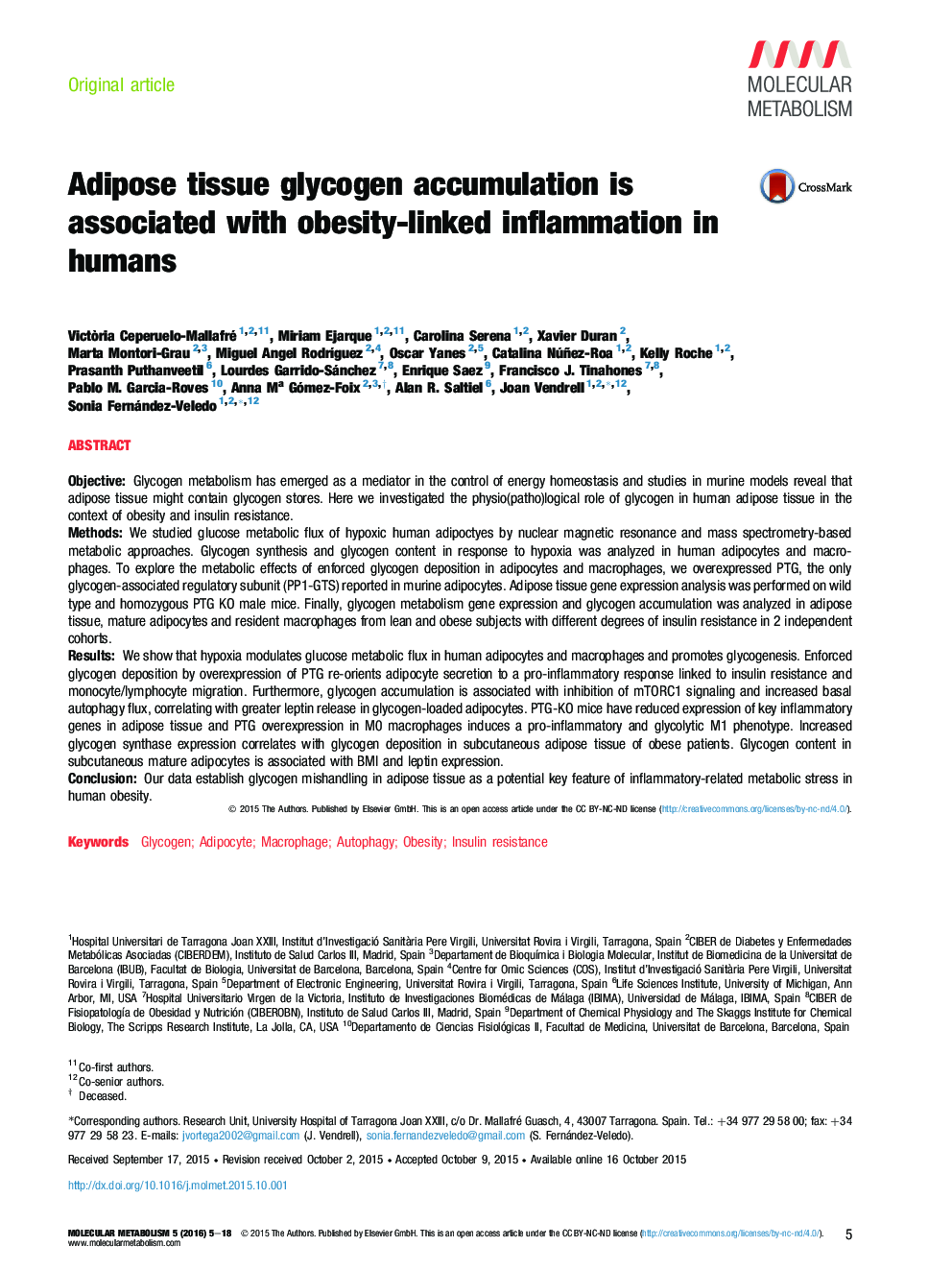| کد مقاله | کد نشریه | سال انتشار | مقاله انگلیسی | نسخه تمام متن |
|---|---|---|---|---|
| 3001299 | 1180580 | 2016 | 14 صفحه PDF | دانلود رایگان |
• Hypoxia redirects extracellular glucose to glycogen synthesis in human adipocytes.
• Glycogen modifies the endocrine function of adipocytes and induces insulin resistance.
• Glycogen stimulates leptin secretion through an autophagy-dependent mechanism.
• Enforced glycogen accumulation in macrophages promotes M1 polarization.
• Obesity is associated with higher GS expression and glycogen stores in adipose tissue.
ObjectiveGlycogen metabolism has emerged as a mediator in the control of energy homeostasis and studies in murine models reveal that adipose tissue might contain glycogen stores. Here we investigated the physio(patho)logical role of glycogen in human adipose tissue in the context of obesity and insulin resistance.MethodsWe studied glucose metabolic flux of hypoxic human adipoctyes by nuclear magnetic resonance and mass spectrometry-based metabolic approaches. Glycogen synthesis and glycogen content in response to hypoxia was analyzed in human adipocytes and macrophages. To explore the metabolic effects of enforced glycogen deposition in adipocytes and macrophages, we overexpressed PTG, the only glycogen-associated regulatory subunit (PP1-GTS) reported in murine adipocytes. Adipose tissue gene expression analysis was performed on wild type and homozygous PTG KO male mice. Finally, glycogen metabolism gene expression and glycogen accumulation was analyzed in adipose tissue, mature adipocytes and resident macrophages from lean and obese subjects with different degrees of insulin resistance in 2 independent cohorts.ResultsWe show that hypoxia modulates glucose metabolic flux in human adipocytes and macrophages and promotes glycogenesis. Enforced glycogen deposition by overexpression of PTG re-orients adipocyte secretion to a pro-inflammatory response linked to insulin resistance and monocyte/lymphocyte migration. Furthermore, glycogen accumulation is associated with inhibition of mTORC1 signaling and increased basal autophagy flux, correlating with greater leptin release in glycogen-loaded adipocytes. PTG-KO mice have reduced expression of key inflammatory genes in adipose tissue and PTG overexpression in M0 macrophages induces a pro-inflammatory and glycolytic M1 phenotype. Increased glycogen synthase expression correlates with glycogen deposition in subcutaneous adipose tissue of obese patients. Glycogen content in subcutaneous mature adipocytes is associated with BMI and leptin expression.ConclusionOur data establish glycogen mishandling in adipose tissue as a potential key feature of inflammatory-related metabolic stress in human obesity.
Journal: Molecular Metabolism - Volume 5, Issue 1, January 2016, Pages 5–18
